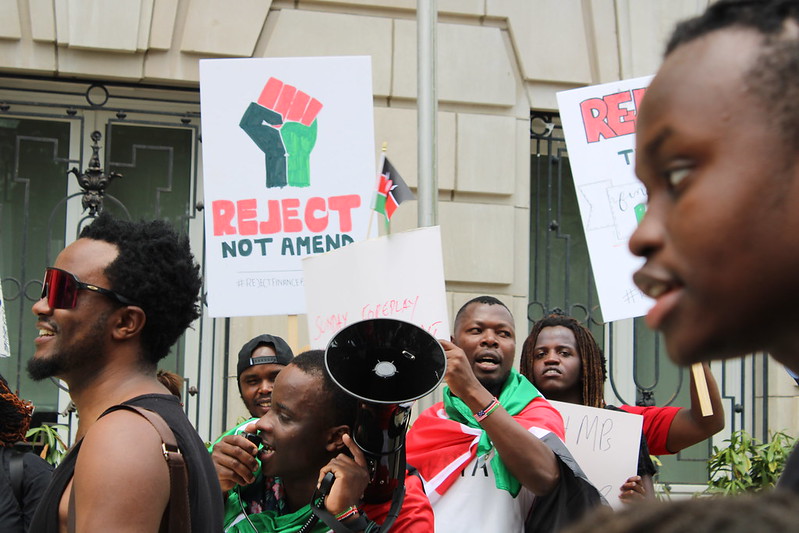By Clarisse Sih and Bibbi Abruzzini, Forus, EU SEE consortium partner
Amid troubling headlines, the EU SEE alerts from the past few weeks also brought encouraging signs that an enabling environment is not only under attack – but being actively defended, rebuilt and even expanded in some contexts. Legal victories, inclusive governance reforms and new funding mechanisms show that civil society is not a passive victim – it is a resilient force for democratic accountability.
While the following examples demonstrate positive steps taken by various governments to support civil society operations showing the right direction to aim, it is important to recognise that these concrete improvements do not necessarily reflect the broader enabling environment, which may remain restrictive, unpredictable, or hostile to civil society organisations in other significant ways.
The need to reinforce commitments to protect civil society
In Panama, while aggressive crackdowns of civil protests earlier in June regarding the new social security law, the Supreme Court ruled in favour of protecting freedom of expression and press on a long-standing issue unrelated to the current political crisis. By adopting stringent legal standards against defamation lawsuits, the court reinforced essential legal protections that safeguard journalists, media and civil society’s ability to demand accountability without fear of unjust reprisal. This judicial win demonstrates that even in tense environments, legal systems can act as buffers against political operators that misuse the legal system for judicial harassment.
“It is time for prosecutors to start distinguishing legitimate complaints and/or request for assets’ seizures against journalists and activities, from malicious one that constitute judicial harassment. We hope this ruling helps stops legal abusive actions intended to silence, intimidate, and financially ruin those who exercise freedom of speech or of the press in Panam”, says Olga de Obaldia, executive director of Transparency International Panama (Fundación Libertad Ciudad), EU SEE network member.
Zambia showed further promise. Civil society groups were officially included in national level electoral reform consultations, setting a promising precedent for participatory governance. This structured engagement underlines the crucial role of an open and responsive state in co-creating a supportive environment for civil society.
Similarly, in Timor-Leste, a newly announced grant programme will channel direct funding to local organisations for inclusive policy monitoring – a rare case where donor and state interests align to bolster grassroots engagements. This innovative approach ensures civil society can sustainably participate in policy monitoring and actively shape its context.
“Belun is a recipient of the GASC Grant for Civil Society and is committed to continuing its work on the EU SEE project. The project’s effective methodology and strong engagement with key stakeholders serve as a valuable model for advocacy and the development of sound civic space policies in Timor-Leste,” shares Belun, EU SEE Network Member in Timor-Leste.
Meanwhile, Malaysia advanced reforms that protect peaceful protests. This reform confirmed a temporary suspension on investigations related to recent demonstrations and introduced amendments to uphold the right to peaceful assembly. These legal developments are a testament to persistent advocacy from Malaysian CSOs and youth leaders, demonstrating how advocacy efforts can directly shape a supportive legal and regulatory framework.
In Kenya, there was a significant win for civil society through the ongoing implementation of the 2024 Public Benefit Organization (PBO) Act. The government did not only extend the registration deadline but also launched a transparent, multistakeholder drafting process for the regulations – complete with nationwide public participation forums through July 2025 and a commitment to publishing a finalised version in August 2025.
These positive developments illustrate how enabling environments can indeed be strengthened through strategic legal reforms, inclusive governance processes, and sustainable resourcing of civil society. Although the overall enabling environment depends on so much more – which is yet to be handled by Kenyan authorities – , these are baby steps in the right direction and they remind us that while an enabling environment is fragile, it is also dynamic. Legal gains and institutional access do not come without risk – but they offer tangible hope.
These recent examples from the past few weeks provide actionable insights for other countries: courts matter, inclusive policy processes work and resourcing local organisations is essential for long term democratic resilience.
Recognising and amplifying these successes is critical to inspire replication in other contexts and to reinforce global commitments to ensuring civil society can operate effectively, safely, and sustainably.
In a global landscape where backlash often makes headlines, it is equally important to amplify moments of breakthrough – to celebrate and replicate them wherever possible.
